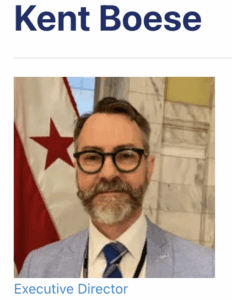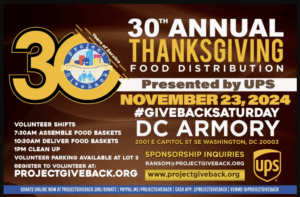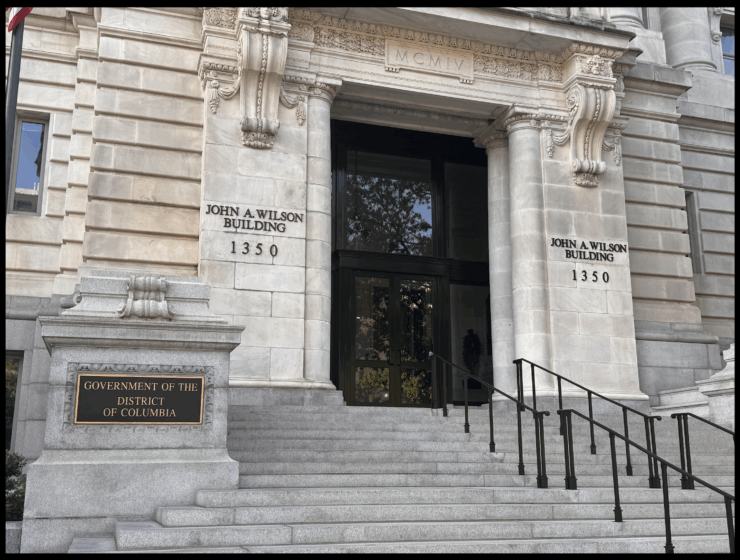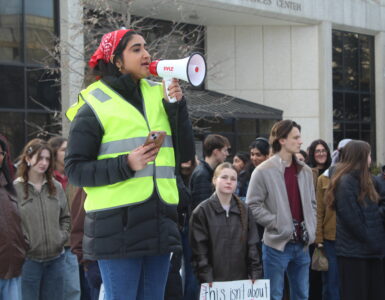Did you know that many of D.C.’s advisory neighborhood commissions offer grants to community organizations?
If you didn’t, you are not alone. It’s been 50 years since the first ANC elections, but D.C. residents are unaware that these neighborhood commissions administer community grants.
While a lot of confusion remains about the role and power of ANCs in the District, the community grant program can have visible impact, if you’re lucky enough to live in a neighborhood that offers them.
According to the Office of Advisory Neighborhood Commissions FY 2025 Approved Budget and Financial Plan, the role of the ANCs is “to advise the District government on matters of public policy,” which range from planning and social service programs to health, safety, and sanitation.

The ANCs provide advice and recommendations to the D.C. Council, the mayor, and various agencies, boards, and commissions of government. Some ANCs also award grants to help their communities.
“ANCs do a tremendous amount of work,” says Office of Advisory Neighborhood Commissions Executive Director, Kent Boese. “We are in a much better city because of them.”
The OANC oversees each of the District’s individual neighborhood commissions. When it comes to grants, both the OANC and the ANC receive the applications.
The OANC reviews the grant for fiscal compliance and makes a recommendation on if they feel it would be an appropriate expense. The ANC can then decide if it still wants to support it, Boese said.
For community members who want to apply for a grant, there are rules, of course. Grants can be as much as $3,000 and are available to organizations, not individuals, based on D.C.
Organizations can’t receive more than one grant in a year.
Can’t duplicate a city service.
Also, for a group to receive a grant, it can’t be for a program that duplicates a city service. Boese said that line is clear, but there is nuance.
“For example, the city has a program where you can ask for free tools during the fall for community clean-up. However, the city doesn’t operate a program for that during the winter,” he said. A grant for a winter program would be allowed, but the ANC would need to retain ownership of the tools, he said.

Additionally, grants can’t be used for things such as food, must benefit the community (not a person or organization), and must be for a future event, Boese said.
Ward 1 resident Wendy Singleton, a board member and logistics coordinator for Project Giveback, has helped her organization get an ANC grant for the past five years. The organization, founded by Ransom Miller III, has used the money to support their annual Thanksgiving food distribution. This event, celebrating its 30th year, helps Project Giveback support over 5,000 families with bulk food distribution throughout the city.
“It’s not a hard process,” she said. “You have to get in early. The ANCs want to make sure their constituents are being served.”
Not all commissioners offer grants.
Since the ANC’s have final say if an organization or event gets funded, single member district representatives can sponsor a proposal for an organization that is based outside of their ANC. This is important because not all ANCs offer grants.
For example, Anna Krebs, commissioner and treasurer of ANC 6B06, represents one of those districts.
“6B does not currently have grants available, but it is something that we are actively working on,” she said.
She said her neighborhood commission is working with the OANC to see what kinds of grants have been approved for other neighborhoods.
Before becoming an ANC commissioner, Krebs said she hadn’t heard of the grants either. However, she added that she does see the value of them.
“Part of why we want to bring back grants is so we can put money back into the community,” she said.
So who decides if an ANC will offer grants or not? According to Boese, that’s up to the ANCs as well.
“It is important when reading the Code to pay attention to the words ‘may’ and ‘shall.’ ‘May’ means that a Commission is allowed, but not required, to do something. ‘Shall’ means that a Commission must so something,” Boese said.
Boese is referring to section 1–309.13(l)(1) of the D.C. Code, which says “Expenditures may be in the form of grants by the Commission for public purposes within the Commission.”
Some commissions have elected to start creating programs themselves, rather than issue reimbursements to organizations, Boese said.
According to the OANC Annual Report for FY24, ANCs receive an approved allotment in the D.C. budget by the mayor. For the last two years, that amount was $915,688, which comes to $1.327 per District resident based on the 2020 census.
The OANC can also recommend that the Office of the Chief Financial Officer withhold a portion of an ANC’s allocation if that commission has spent money for something that is not allowed (e.g. a committee luncheon) or is not in accordance with the procedures for spending money (e.g. the expenditure is not recorded in the minutes, or the check does not have two signatures). It is the OCFO that makes the quarterly allotments to the ANCs.
ANC budgets are restricted to two main uses: administration and community support. Admin can be office supplies, business cards, signs, advertising, or rent for office space or community meetings. The commissioners themselves are not paid, however.
A common theme is a lack of awareness. “Even if people don’t get involved, they should know we exist,” Krebs said.
Singleton said she found out about the grants from a member of her church.
“They don’t publicize,” she said. “You need to be active in the ANC, and you need to go to meetings.”
Boese said his office is working to fix the lack of awareness of the grant program. In addition to improving individual websites, his office is working on an initiative in conjunction with local libraries to bring more attention to the commissions, and the work they do, before next year’s election.















Well researched; hopefully, the word will get out and encourage more participation…